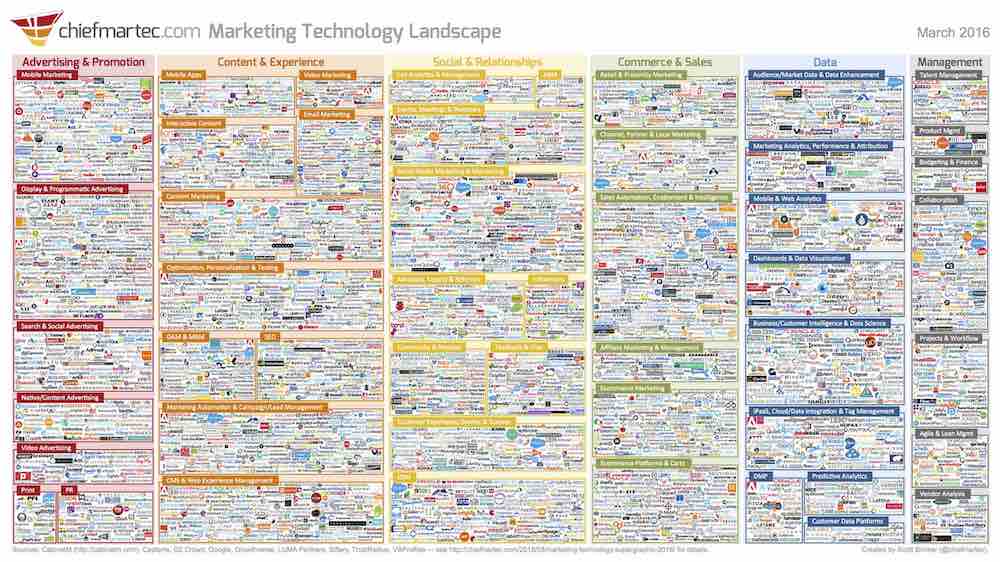10 Common SEO and Content Marketing Questions
My team and I recently returned from a beautiful week in Fort Lauderdale, where we got to hang out once again with an amazing group of transportation and logistics marketers at the annual Transportation Management & Sales Association (TMSA) conference.

Nate and Rebecca sporting Profound Strategy colors at TMSA’s 2016 annual conference
The theme of this year’s event was content marketing, with keynote speaker Joe Pulizzi delivering a lively talk on the impact content plays today in marketing. (Here are some more event highlights.)
TMSA is one of the few niche conferences by marketers, for marketers. We had an amazing number of insightful conversations about not just content marketing, but the vital role modern SEO should play alongside content marketing. Some common themes and questions quickly emerged, so I thought I would collect them all in one place and share some of my comments.
1. Do I start with content marketing or SEO?
Although SEO and content marketing are so closely related, that doesn’t mean content marketing is SEO (or vice versa). Do I start with one, or the other? My answer: Yes.
A robust content marketing strategy is the vehicle for modern SEO, but that same SEO is what fuels a truly effective content marketing campaign.
Engagement SEO keyword-and-user-intent research should largely inform your content marketing strategy. Modern keyword research will reveal not only what keywords your audience is using, but what questions they’re asking and what information they’re looking for.
As you develop and release content to meet their needs, solve their problems, and answer their questions, further SEO considerations should always go with them. Technical SEO items like keyword density, link volume, URLs, alt tags, etc., open the door for your content to see SEO results.
This overlap between content marketing and SEO is a big topic, and crucial to anyone doing digital marketing today, which is why I recently published The CMO’s Guide to Modern SEO.
2. If prospects already know me then why would I need SEO?
If you’re comfortable with the number of prospects currently in your funnel, and feel assured that enough of them will convert to sales to sustain your business indefinitely, then you don’t need SEO—or any other marketing, for that matter.
But if you’re interested in growing your business, increasing your brand’s influence in your industry, and improving your lead nurturing efforts in order to close more sales, then a mature SEO strategy is crucial to your brand. If you are invested in content marketing, then you need SEO.
A real SEO strategy is about more than top-of-funnel leads. I wouldn’t even say it’s mostly about top-of-funnel leads. Modern SEO gets your brand in front of prospects at every stage of the funnel, because your prospects might know you, but what do they think of you? Do they know that you’re one of many choices, or do they know that your brand is leading the industry, that your staff are all experts in their respective niches, and that your customer service is unparalleled? Are you top of mind at every stage in the buying journey?
Brands frequently create content to nurture leads, to establish themselves as thought-leaders, to speak to buyers at every stage of the funnel, but without an SEO strategy behind that content it just gets lost in a web full of other (very similar) content. SEO gets your content noticed by search engines and by users.
3. Does SEO and content marketing work for transportation? Are logistics buyers searching for service providers on Google?
At Profound Strategy, we have applied modern SEO strategies to businesses in a wide variety of both B2B and B2C industries, and it works every time. More and more B2B buyers, in general, are using search for business purchases:
- 81% of B2B purchase cycles start with web search.
- 90% of buyers say when they are ready to buy, “they’ll find you.”
- 57% of B2B marketers say SEO has the biggest impact on lead generation.
Buyers are self-educating through every purchase decision, and using search to find the information and answers they need. Modern SEO strategies help your brand stand out so that you’re always top-of-mind as buyers walk themselves through the sales funnel.
In the spring of 2016, Profound Strategy was privileged to partner with Saddle Creek Logistics for a website build and the launch of an SEO campaign. Immediately after the launch we were already noticing exciting progress:
- 73% increase in total website traffic
- 74% increase in pages per session
- 58% increase in traffic from SEO (organic search)
Our work with Saddle Creek Logistics turned out to be a great case study on SEO in the logistics industry, and the B2B arena in general.
4. How do I start writing content?
A lot of content marketers will tell you that creating good content starts with figuring out what your audience and your prospects need. What questions are they asking? What problems can you solve for them?
But creating content that also benefits from a modern SEO campaign means figuring out not only what your audience is asking, but how they’re asking it. This is where “keyword + user intent” research comes in.
- Identify your core keywords.
- Conduct depersonalized searches for those keywords.
- Study the search results and make notes about what Google is delivering for those keywords. Google’s algorithm is always updating in order to provide relevant, useful results for users. What appears on page 1 is probably what your audience wants.
- Compare that content—the formats, the content, etc.—with the content on your site. Are you providing what your audience is looking for? Are you doing it as well as your competitors?
- Draft a plan to create content that fills in the gaps between what your audience wants, and what your site is providing.
Good content has to start with modern, relevant keyword research, which is why we recorded Your SEO Keyword Strategy is Broken: Here’s Why (and What To Do About It).
5. What keywords should I use?
Remember that keywords are how your audience finds you. Sometimes, brands and thought-leaders want to differentiate themselves in their industry by coining new phrases and renaming core services or strategies. That’s a good marketing strategy in some regards, but not for keyword strategies.
Similarly, if your audience uses an incorrect term for your product or service, keep that in mind. You naturally want to correct the mistake and provide accurate information, but the incorrect term can be used strategically.
The point is, you need to use the same language that your prospects are using, and discovering that language is as simple as listening.
- Use social media to watch conversations happening about your product or industry. You can search for common hashtags or join niche groups and forums. You don’t need to participate in the dialogue, just get a feel for the language being used.
- Talk to your customer service and sales reps. Ask them how people talk about your industry, brand, product, etc.
- Check Google’s related search suggestions. Google what you assume are your brand’s core keywords, and scroll to the bottom of the page. There, you will usually see, “Searches related to …” Those searches may or may not actually be related, but they are searches that your audience thinks are related, so the terms used there may be important.
Developing an effective keyword strategy can be a strange, new world for a lot of marketers. I outlined our process in greater detail in my Search Engine Land article, “Why You Should Never ‘Do Keyword Research’ Again.”
6. What marketing technology should we use?
What marketing needs do you have?
MarTech (that’s what the cool kids call marketing technology) is a big, exciting industry—especially for people like me who get excited about new technologies and tools. It’s easy to stand wide-eyed in the face of all the options and ask where to start your collection.

But the real question should be, “What do I need tech to do?” Are you having trouble with email? Nurturing leads? Metrics? Find the tech that suits your needs, rather than the tech that makes great promises—and one more thing for you to do.
7. Is my website converting? Is it even helping me make sales? How do I figure that out?
If you’re not already set up with Google Analytics, start there. Set up goals to monitor how users are interacting with your content: are they downloading gated content? Signing up for demos and events? Contacting a sales rep? Then, dig deeper and experiment a little:
- Compare pages that convert well with pages that don’t. What makes one page more inspiring than the others? Different layouts? Different CTAs? Different images?
- Try redesigning key elements, and monitor the results. If a button isn’t getting clicks, change the color and/or the CTA text for a few weeks and see how it compares. Have a professional content creator rewrite a few key landing pages and see if you get more engagement, etc.
You may also start to glean some insights as you do user intent research, and compare the content on your site with the content that Google delivers for your core keyword groups.
Profound Strategy has never done SEO for the sake of SEO. Like any other marketing strategy, it’s about driving revenue and expanding market share. We’ve explored this before in our blog post, “8 SEO Best Practices for SaaS Product Pages,” and, more recently, in an ebook, 5 Ways B2B Websites Get It Wrong.
8. We are starting to work on content marketing now but it is overwhelming. How do you scale content marketing?
Content marketing for a large or enterprise-level organization can quickly become complicated: more products/services means more keywords, competition is tougher, more cooks want to be in the kitchen, etc.
There is a myriad of content marketing tools and services available to help in whatever capacity you need. Many of them are great tools, but they also tend to add one more step (each) to the process. You now have to run your content through this tool to check for grammar, and this widget to check for on-page SEO elements, etc. The truth is, good people do a better job because your content is for people—and internet users can smell a robot from a mile away.
If your content marketing is scaling, it might be time to add to your marketing team. There are a lot of great freelancers and agencies available, if you’re not ready to hire more staff, but be cautious here as well. At the risk of sounding self-serving: make sure you work with people (whether freelancers or an agency) who know content marketing and SEO. As mentioned earlier, content marketing without SEO will get lost in the noise, and you’ll wonder why you invested so much in such great content.
9. What do you do that is different than other SEO companies?
Profound Strategy (previously SEOperks) has always been committed to long-term, white-hat SEO strategies, and our year-over-year growth—coupled with a client retention rate we are very proud of—speaks to the success of our strategies.
Years of honing our strategy has resulted in what we call “the 80/20 principle.” A lot of SEO companies focus on technical work, because there’s always technical work to be done. It’s easy to keep busy, and it’s easy to provide a long report to the client of work that’s been done.
But technical SEO work doesn’t move the needle on SEO metrics that matter, like long-term ranking, organic traffic, and conversions. At best, it is a barrier to entry: problems in this area will hold back the very best engagement SEO. So it’s worth taking care of, but we don’t spend more than about 20% of our time on technical issues.
The other 80% of our time, we spend on what we call engagement SEO. This is SEO that works hand-in-hand with content marketing to move your site up through search rankings, engage your audience, and drive sales.
Additionally, we have assembled a crack team of some of the very best strategists, content creators, designers, and analysts—and we like to show them off. Our clients know our team and work with them, so that the Profound Strategy team really becomes an extension of your brand’s marketing team.
You can, of course, read more about Who We Are and how we SEO on our website.
10. How do you tackle content marketing?
At Profound Strategy, we practice what we preach about keywords, user intent, writing content, etc. Our 80/20 SEO principle leans heavily, by necessity, on content marketing.
In our work with clients, we take the time upfront to learn their industries, their business models, their niches, their audiences, etc. We call this the “discovery” phase of our process. We start with suggested keywords from the client and the client’s existing website, and expand on the list as our keyword research indicates that we should.
We end up with a thorough understanding of your business, a copy of your marketing personas (even if you didn’t have them before), and an enormous spreadsheet of keywords that have been grouped, prioritized, and studied for user intent implications. We take all of that information and work with you to develop content concepts and prioritize them into a calendar.
Then our crack editorial team—with their own team of hand-picked freelance writers—gets to work.
Content Marketing Loves SEO
We always have a great time at TMSA, because we love to hear from people who are asking real questions about how SEO fits in their current marketing strategies and plans. We also got to hear a lot of great stuff about content marketing in general this year.
Profound Strategy has been a fan of content marketing since we opened our doors as SEOperks, because we believe in SEO and we’ve seen how content marketing has become the other side of our favorite coin. If you have more, specific questions about SEO and content marketing, or what it looks like for your industry/business, don’t hesitate to contact us!
What's Next?
Profound Strategy is on a mission to help growth-minded marketers turn SEO back into a source of predictable, reliable, scalable business results.
Start winning in organic search and turn SEO into your most efficient marketing channel. Subscribe to updates and join the 6,000+ marketing executives and founders that are changing the way they do SEO:
And dig deeper with some of our best content, such as The CMO’s Guide to Modern SEO, Technical SEO: A Decision Maker’s Guide, and A Modern Framework for SEO Work that Matters.




